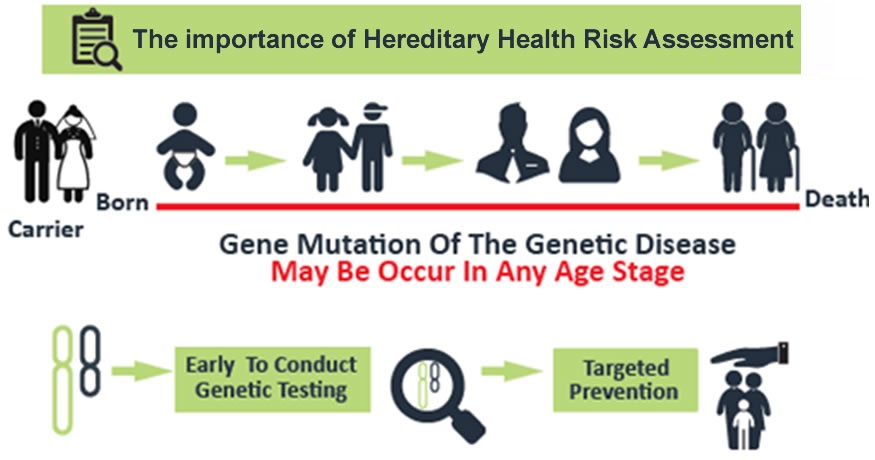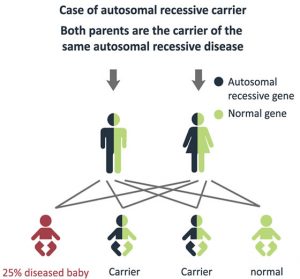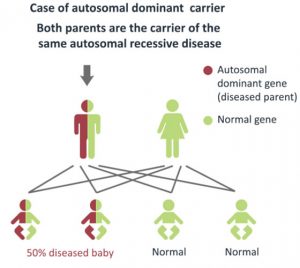Hereditary Health Risk Assessment
Humans have 23 pairs of chromosomes. Sperm and egg each carries 23 chromosome units. During fertilization, sperm and egg fuse together and form an embryo, and this embryo will carry 23 chromosome units from sperm (father), and 23 chromosome units from egg (mother) – together 23 pairs of chromosome. In short, we inherit half of the genetic material from our father, and another half of the genetic material from our mother.
The importance of Hereditary Health Risk Assessment

The assessment performs genetic test for more than 670 hereditary diseases. These diseases can be categorized into 5 major groups: development disability related, intelligence related, sexual development related, early death related and metabolism related diseases. Such comprehensive genetic test can detect the autosomal recessive disease which will be passed from parents to children, or even autosomal dominant disease(which can be treated if discovered early). Parents can have a better understanding of their children’s condition, in order to do a better health management.
*Assessment result takes 6 weeks to process.
Autosomal recessive VS Autosomal dominant inherited disease
Most of the inherited disease can be categorized autosomal recessive (AR) and autosomal dominant (AD). When the disease is autosomal recessive, the disease will appear when the children inherit two copies of the same mutated gene, one copy from each parent. When the disease is autosomal dominant, the disease will appear when the children inherit either one copy of the mutated gene from either parent. Some of the diseases can be categorized as sex-linked too, which mean only male/ female can inherit such diseases.

Depending on the hereditary nature of the disease (autosomal recessive, autosomal dominant or sex-link), the chance of having diseased children will be different. If both parents are carriers of the same autosomal recessive disease, they will have 25% chance of having normal children, 50% having a Carrier children, and 25% having diseased children.

Benefits of Hereditary Risk Assessment
- DNA Increased awareness
If you know you have a genetic risk for a disease you’re likely to be vigilant in protecting your health and being aware of the warning signs of something more serious. - Time to take preventative measures
You are more likely to tread with caution and take measures that may mitigate your condition. For example, changes in lifestyle and diet, regular check-ups and doctor visits. - Preparing the next generation
Looking after your loved ones and preparing them for the future is important, especially when it comes to health. If both parents are carriers of a condition but have not exhibited symptoms themselves, their children may still be at risk of inheriting the condition. - Identifying rare diseases
Many unusual symptoms and abnormalities can be difficult to diagnose. For example newborn babies are unable to communicate their symptoms. A hereditary risk assessment can help doctors diagnose an infant’s condition soon after birth.
Suitable candidates
- New born baby
- With family history of hereditary diseases
- Premarital couples or planning to have babies
- Parent(s) suspect that they are carrying genetic mutation of hereditary disease
(Suggested to perform a comprehensive screening for their new born children)



